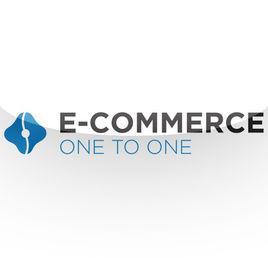概念
電子商務包括電子貨幣交換、供應鏈管理、電子交易市場、網路行銷、線上事務處理、電子數據交換(EDI)、存貨管理和自動數據收集系統。在此過程中,利用到的信息技術包括:網際網路、外聯網、電子郵件、資料庫、電子目錄和行動電話。 而廣義上的電子商務—電子業務或EB(英語: E-Business)則是指對整個商業活動實現電子化,也就是指套用計算機與網路技術與現代信息化通信技術,按照一定標準,利用電子化工具(有時甚至指整個電子媒介領域,包括廣播、電視、電話通訊等等)來實現包括電子商務(或電子交易)在內的商業交換和行政作業的商貿活動的全過程。
Electronic commerce, commonly known as e-commerce or eCommerce, consists of the buying and selling of products or services over electronic systems such as the Internet and other computer networks. The amount of trade conducted electronically has grown extraordinarily since the spread of the Internet. A wide variety of commerce is conducted in this way, spurring and drawing on innovations in electronic funds transfer, supply chain management, Internet marketing, online transaction processing, electronic data interchange (EDI), inventory management systems, and automated data collection systems. Modern electronic commerce typically uses the World Wide Web at least at some point in the transaction's lifecycle, although it can encompass a wider range of technologies such as e-mail as well. A large percentage of electronic commerce is conducted entirely electronically for virtual items such as access to premium content on a website, but most electronic commerce involves the transportation of physical items in some way. Online retailers are sometimes known as e-tailers and online retail is sometimes known as e-tail. Almost all big retailers have electronic commerce presence on the World Wide Web. Electronic commerce that is conducted between businesses is referred to as business-to-business or B2B. B2B can be open to all interested parties (e.g. commodity exchange) or limited to specific, pre-qualified participants (private electronic market). Electronic commerce that is conducted between businesses and consumers, on the other hand, is referred to as business-to-consumer or B2C. This is the type of electronic commerce conducted by companies such as Amazon. Electronic commerce is generally considered to be the sales aspect of e-business. It also consists of the exchange of data to facilitate the financing and payment aspects of the business transactions.
發展史
Version 1、起步期
1990-1993年,電子數據交換時代,成為中國電子商務的起步期。
Version 2、雛形期
1993-1997年,政府領導組織開展“三金工程”階段,為電子商務發展期打下堅實基礎。
1993年成立國務院副總理為主席的國民經濟信息化聯席會議及其辦公室,相繼組織了金關、金卡、金稅等"三金工程",取得了重大進展。
1996年1月成立國務院國家信息化工作領導小組,由副總理任組長,20多個部委參加,統一領導組織我國信息化建設。
1996年,全橋網與網際網路正式開通。
1997年,信息辦組織有關部門起草編制我國信息化規劃
1997年4月在深圳召開全國信息化工作會議,各省市地區相繼成立信息化領導小組及其辦公室各省開始制訂本省包含電子商務在內的信息化建設規劃。
1997年,廣告主開始使用網路廣告。
1997年4月以來,中國商品訂貨系統(CGOS)開始運行。
Version 3、發展期
1998-2000年,網際網路電子商務發展階段。
1998年3月,我國第一筆網際網路網上交易成功。
1998年10月,國家經貿委與信息產業部聯合宣布啟動以電子貿易為主要內容的“金貿工程”,它是一項推廣網路化套用、開發電子商務在經貿流通領域的大型套用試點工程.。
1999年3月8848等B2C網站正式開通,網上購物進入實際套用階段。
1999年興起政府上網、企業上網,電子政務(政府上網工程)、網上納稅、網上教育(湖南大學、浙江大學網上大學),遠程診斷(北京、上海的大醫院)等廣義電子商務開始啟動,並已有試點,並進入實際試用階段。
Version 4、穩定期
2000-2009年,電子商務逐漸以從傳統產業轉向以B2B為主體的形式,標誌著電子商務已經進入可持續性發展的穩定期。這一時期比較知名的電子商務網站有淘寶網,ECVV等。
Version 5、成熟期
3G的蓬勃發展促使全網全程的電子商務V5時代成型。

